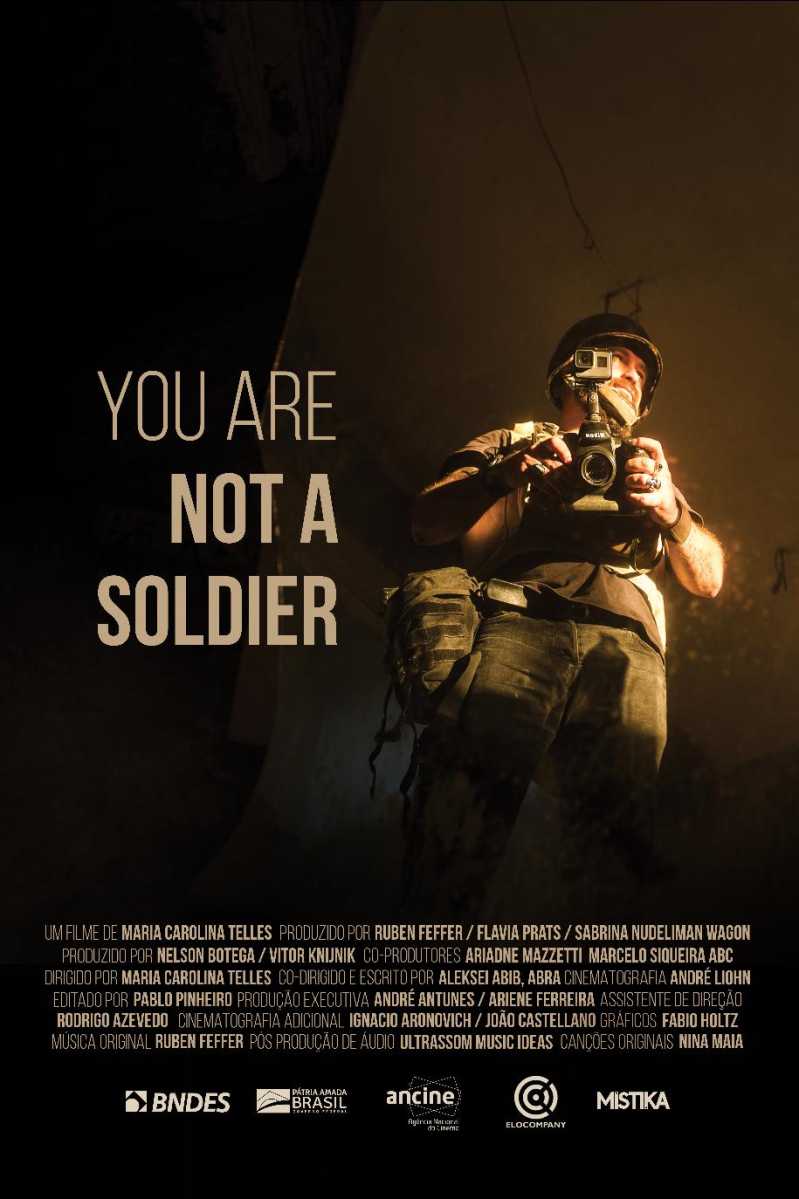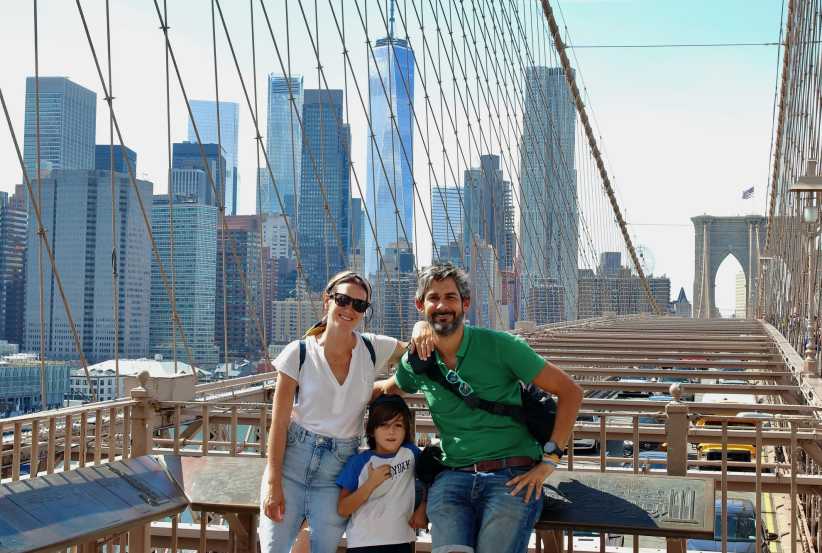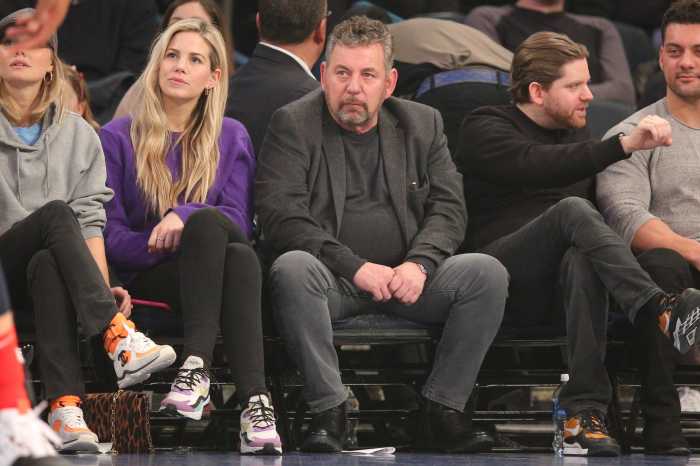By the time Maria Carolina Telles’ war documentary “You Are Not a Soldier” premiered in 2021, the War in Iraq (2013-2017) had torn communities asunder and displaced tribes. The Islamic State had writhed in territorial defeat and the parameters of a future insurgency had been laid. Then, “You Are Not a Soldier” was an anachronism for Telles, a retrospective monograph shot by a friend, Brazilian freelance war photographer and Robert Capa Gold Medal recipient André Liohn.
Now, Telles’ patchwork film, constructed from fragments of Liohn’s 140-hour war footage and screened at the Bronx Documentary Center this July 26, is a salient reminder of present-day battlegrounds for Telles. And it doesn’t take lots of finagling to read the film in present context. Liohn’s camera aims: A shrapnel-ridden soldier shuffles to paramedics, a general’s death curbs a guerrilla siege, journalists dodge makeshift projectiles, blood pools on storefront pavements; they’re canonic images on the Gaza Strip.
“It’s almost axiomatic: powerful nations periodically engage in large-scale ‘liberation’ and reconstruction efforts. I see it as a macabre choreography that reveals the grim dance of military power, the brutal skill of trained soldiers, the madness of fanatics in their ideologies, or the thirst for revenge of threatened people,” Telles tells the Bronx Times. Telles captures the choreography of war with this anti-war lens in “You Are Not a Soldier.”
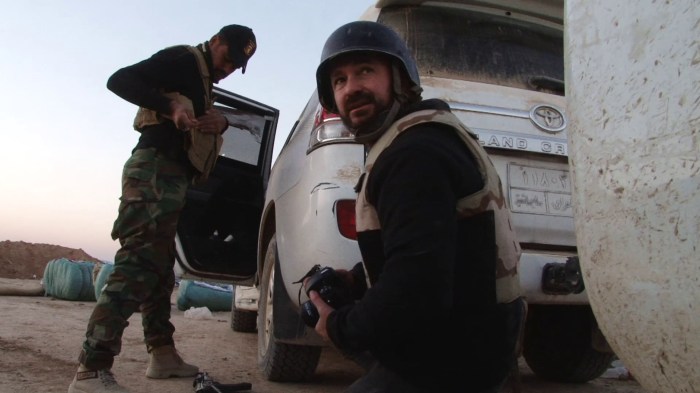
That is not to say the film is all anti-war effusion. Telles instead intended a character study of Liohn, a mold for the men that leap into war, including Telles’ late father, an overeager World War II soldier. In the scenes that punctuate Liohn’s war videography, the war photographer traces the unsavory memories of a childhood defined by his abusive father and everts his children’s pleas that he quit war altogether. Telles doesn’t shy from the more tender tableaus though. Liohn’s lens aims at a family beach scene and his son, Anton’s, kitten rescue expedition. For Telles, the posterity of an ex-soldier, these episodes were necessary to frame the stakes of Liohn’s profession.
Eventually Liohn’s thin equilibrium—between family and fatal profession—collapses.
In one of the last sequences of “You Are Not a Soldier,” Liohn delivers a diatribe, on a walk in Italy, to his handheld camera. The clip is shaky, if lay panning from Liohn’s face to the Colosseum and back again. In it, Liohn speaks acid-tongued about the flatness of popular photography after the War in Iraq’s final episode.
“People make pictures thinking that their pictures are unique. They think, these people, that their pictures are unique. See this guy here? He’s doing a picture that he thinks is unique. They’re playing,” he says.
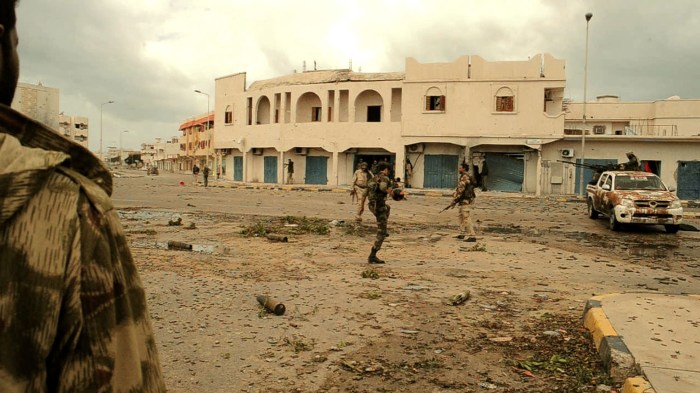
“They created the Colosseum because all of us mother******* one day would be here. That’s it, that’s it. So, they knew that one day everybody would have mobile phones, cameras, that the image of anything would have no meaning and we all would be showing ourselves in front of the Colosseum thinking that we’re doing something special.”
This sequence feels like a filmic detour, both in style and content for the documentary. There is little memory of Liohn’s arresting combat footage from the War in Iraq as the photographer’s camera toggles between himself and the Colosseum. And the cloudy texture and imprecision of the shot resembles none of Liohn’s camera punditry from the scenes before. But Liohn’s on-screen quasi-monologue is the film’s most vital contention: That Liohn’s war photography renders one of the world’s modern wonders banal is a testament to the stakes of Liohn’s snapshots.
Telles explains, “This moment isn’t just about his frustration with tourists taking seemingly meaningless photographs; it juxtaposes the triviality of everyday life with the horrors he has witnessed in war zones.” She adds, “It reminds us that photographing war is not just a professional duty but a deeply personal and painful experience that leaves lasting scars.”
You can watch “You Are Not a Soldier” on Apple TV and Prime Video.
For more coverage, follow us on Twitter, Facebook and Instagram @bronxtimes

